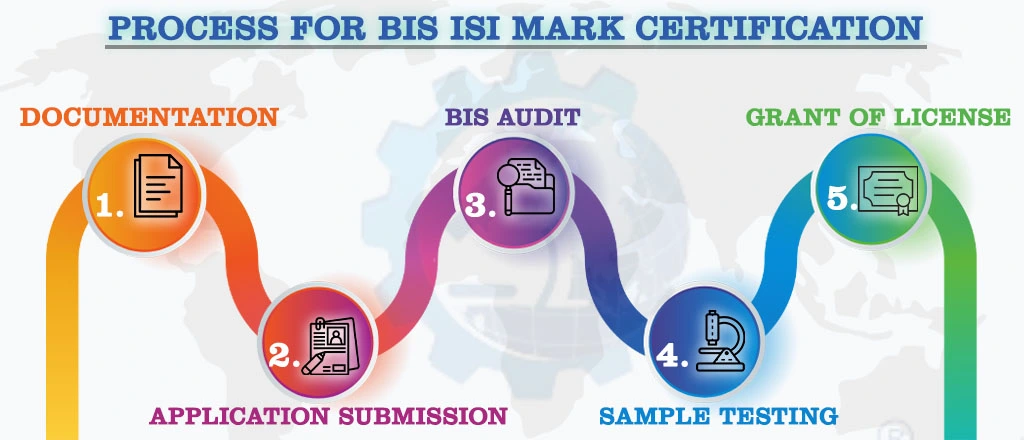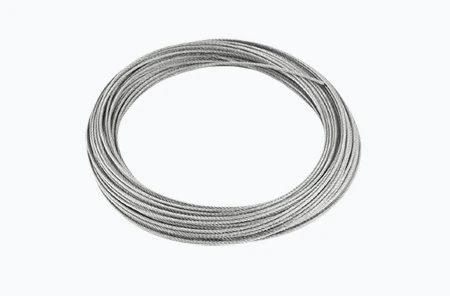BIS CERTIFICATION FOR STAINLESS STEEL WIRE
IS 4454 (PART 4):2001
In this competitive scenario, it isn't easy to survive in the market without a standard quality and certified product. BIS license may also be required to sell products in the Indian market.
To get BIS certification and produce a standard quality product, the manufacturer must ensure that their product must follow the specified Indian standard.
Let's take a closer look at IS 4454 (Part 4):2001 for stainless steel wire.
This standard (Part 4) applies to stainless steels listed in the standard that is typically used in the cold drawn condition in the form of a wire with a circular cross-section up to 10 mm in diameter for the manufacture of springs and spring parts that are subjected to corrosive effects and, on occasion, slightly elevated temperatures.
Stainless steels covered by this standard and exhibiting special corrosion resistance are austenitic in nature, with chromium contents greater than 12%, and are spring hard cold drawn.
The stainless-steel wire shall be classified into three grades: grade 1, grade 2, and grade 3.
The general requirements for material supply are specified in the applicable standard. The processes used in manufacturing steel and stainless spring steel wire are left to the manufacturer's discretion. The surface of the wire must be smooth and free of defects such as grooves, pits, die-marks, and other harmful defects that have a noticeable adverse effect on the wire's application.
The tolerance on wire diameter shall be as specified in the standard. The difference in maximum and minimum wire diameters at the same cross-section shall not exceed 50% of the total permissible deviation specified in the standard. The wire can be coated or uncoated, and mechanical properties must meet standard requirements.
Testing
The following tests shall be carried out in accordance with the standard.
- Tensile test
- Wrapping test
- Reverse torsion test
- Cast of the wire
- Bend test
- Coiling test
Packaging and marking:
The material must be packed so that it is adequately protected against mechanical damage and contamination during transit. Each coil of wire and bundle of straightened and cut lengths must be legibly marked with the name of the supplier, the wire grade, the wire diameter, the surface finish, the mass of the coil, the cast or batch number, and the date of supply. The standard mark (ISI Mark) may also be applied to the material.
The Manufacturer must obtain a BIS license from the Bureau of Indian Standards to use a standard mark (ISI Mark). The Bureau grants a license based on a successful assessment of manufacturing infrastructure, production process, and quality control and testing capabilities during a visit to its manufacturing premises.

NOTE:
For Detailed Information about the Procedure for BIS ISI Certification
Visit :
• ISI Mark Certification for Domestic Manufacturers• ISI Mark Certification for Foreign Manufacturers
Conclusion:
If a product falls under the scope of the BIS Conformity Assessment Scheme, All the manufacturers, importers, and foreign entities must obtain BIS ISI Certification. The Bureau may cancel the License if the product fails to meet certification requirements.
Aleph INDIA has been serving the industry as a single-window operator for all product regulatory compliance. We can assist importers or manufacturers in meeting all criteria for importing or selling a product in the Indian market.
International Audits & Participation
Testimonials
BIS REGISTRATION FOR ELECTRONIC & IT PRODUCT
In the era of globalization, world trade is growing rapidly and henceforth, Manufacturing and Import/Export businesses are also growing drastically...View More
BIS CERTIFICATE FOR FOREIGN MANUFACTURER
The Economy of India-the fastest developing economy on the globe with the capabilities that help it matches up with the biggest international...View More
PRODUCT CERTIFICATION SCHEME (ISI MARK) FOR DOMESTIC MANUFACTURERS
Anything a person buys from food to cars, clothes to electronics, branded to unnamed products there is always a question that wanders in one’s...View More
WIRELESS PLANNING AND COORDINATION (WPC)
WPC: Wireless means communication done from one point to another point without the wires and cables. Electromagnetic waves carry the ...View More
BUREAU OF ENERGY EFFICIENCY (BEE) CERTIFICATE
BEE CERTIFICATE: Energy is the future, and its conservation is the way of the bright future. Everyone claims the environment is important...View More
E-WASTE MANAGEMENT
E-waste is one of the world's fastest-growing trash streams. We currently manufacture almost 50 million tones of it each year...View More
Request a call back.
Would you like to speak to one of our Senior Technical advisers over the phone? Just submit your details and we’ll be in touch shortly. You can also email us if you would prefer.
BIS REGISTRATION FOR ELECTRONIC & IT PRODUCT
In the era of globalization, world trade is growing rapidly and henceforth, Manufacturing and Import/Export businesses are also growing drastically...View More
BIS CERTIFICATE FOR FOREIGN MANUFACTURER
The Economy of India-the fastest developing economy on the globe with the capabilities that help it matches up with the biggest international...View More
PRODUCT CERTIFICATION SCHEME (ISI MARK) FOR DOMESTIC MANUFACTURERS
Anything a person buys from food to cars, clothes to electronics, branded to unnamed products there is always a question that wanders in one’s...View More
WIRELESS PLANNING AND COORDINATION (WPC)
WPC: Wireless means communication done from one point to another point without the wires and cables. Electromagnetic waves carry the ...View More
BUREAU OF ENERGY EFFICIENCY (BEE) CERTIFICATE
BEE CERTIFICATE: Energy is the future, and its conservation is the way of the bright future. Everyone claims the environment is important...View More
E-WASTE MANAGEMENT
E-waste is one of the world's fastest-growing trash streams. We currently manufacture almost 50 million tones of it each year...View More
View All Services
Request a call back.
Would you like to speak to one of our Senior Technical advisers over the phone? Just submit your details and we’ll be in touch shortly. You can also email us if you would prefer.






























